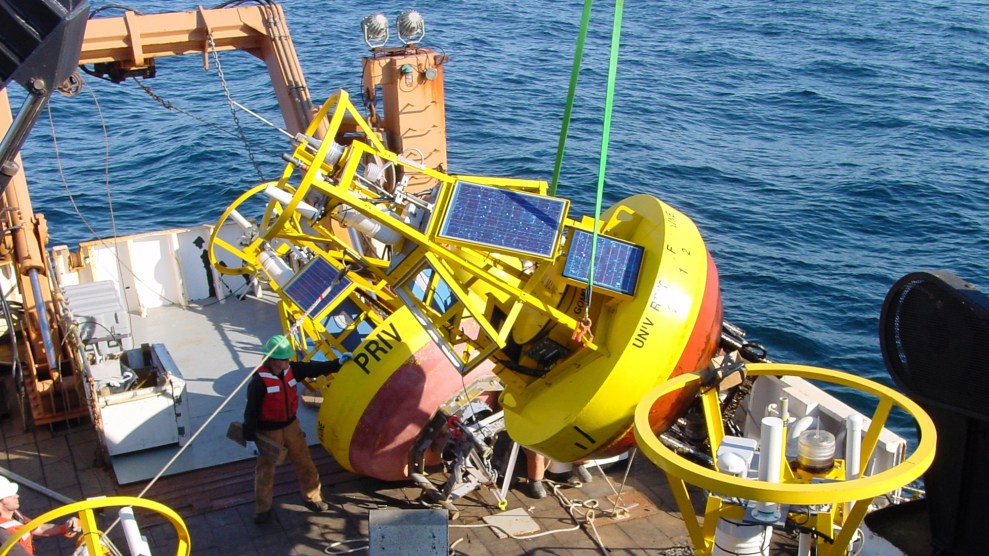“THIS IS MY HOUSE! You need to tell me who you are before you walk in like that!” a towering Iraqi yelled, in Arabic, at Corporal Matthew Conley. “We need to search,” Conley replied tentatively. “We were told there are weapons in the house.” Through an interpreter, the man denied having any weapons other than a single, permitted AK-47. When the Marines found electronics that could be used to trigger a bomb, he said the gear wasn’t his; he and his family had been out of town for several days. Maybe insurgents had occupied the home?
Eventually, the man’s anger subsided. He told the Marines where they might find insurgents in the neighborhood, and even bear-hugged Conley before the troops filed out into the brutal midday heat—of California’s Mojave Desert.
The 2nd Battalion/4th Marine Regiment was at the Marine Corps’ enormous Twentynine Palms base for a monthlong combat-and-culture training package called Mojave Viper. “Haji Khaled,” as the 66-year-old Iraqi American called himself (he didn’t want his real name used for fear of putting Iraqi relatives at risk), was one of the role players hired for the exercise. He gave Conley’s squad middling marks: Their entry had been too abrupt, their tromping through the house downright offensive. “Power doesn’t work with the Iraqi people, especially when you go to villages,” Khaled said. “If they don’t knock on the door and they walk like this and they scare the family, that’s no good for them. They’re going to see more enemy in the area, because people are going to work with the insurgents.” A Marine instructor—or “coyote”—added that while barging in was necessary to avoid possible sniper fire, Conley should have kept his men in the foyer while talking to the owner.
In the absence of a plan and without clear guidance from the Bush administration, responsibility for fixing Iraq devolves to the likes of Corporal Conley, who is serious and capable and has barely reached the legal drinking age. Commanders refer to Marines like him as “strategic corporals,” soldiers whose actions on street corners in Ramadi and Baghdad—negotiate or confront; release or detain; shoot or don’t shoot—reverberate around the world when amplified by Al Jazeera and the Internet. But a 21-year-old is a vessel of limited capacity, and a fragile one upon which to rest the fate of a nation and countless lives.
Mojave Viper is the Marine Corps’ response to this reality. The exercise merges traditional training and a brand-new series of simulations and classes for Iraq-bound Marines, with an emphasis on evoking the intensity of actual combat in a credibly simulated Iraqi village. The goal, said Captain Jonathan Smith, Fox Company’s commanding officer, is to make each soldier “a combat vet before they get in country.” Improvised explosive devices made with black powder and compressed air actually go “boom” and sometimes injure people. Marines and “insurgents” fire “sim rounds,” bullets with paintball-type tips that, according to the grunts, hurt like hell. Iraqi role players speak only Arabic. Classes in language, culture, civil affairs, and policing are held alfresco before combat simulations, and instructors race through information at mind-boggling speed. One Arabic language lesson covered four words—”explosives,” “rocket,” “mine,” and “weapons”—and lasted two minutes and 21 seconds.
Conley’s squad of 12 excelled at straight-up combat tasks—busting through doors and checking homes for insurgents; ferreting out and taking down snipers; running routine patrols. But they performed less smoothly in drills involving “civilians”—the kind of work likely to occupy most of their time in Iraq. On one mock mission, Conley’s squad rounded up three men outside a home. The men pleaded for the Marines to summon their interpreter, but the grunts couldn’t understand.
“Do you really want these people just sitting outside here?” a coyote asked Conley. “Bring all these people inside, because if there’s other locals around, you’d be embarrassing them right now.” Conley pulled out a laminated “Iraq Culture Smart Card,” a menu-sized Arabic cheat sheet. He pointed to a question: “Who is in charge?” The youngest of the men, a twentysomething wearing a Wayne State sweat shirt, pointed to himself, and then to an older man. Conley continued to point at questions; the men continued to respond in Arabic. Stalemate. The squad’s interpreter was elsewhere, so a stymied Conley moved to his next task, leaving the three men under guard.
As intense as Mojave Viper’s drills were, they remained achingly far from real life. Conley and his men suffered no consequences for being confused, frustrated, and unable to communicate; not so in Iraq, as I saw during three stretches as an embed with the Marines. Troops would storm homes, often without interpreters or solid intelligence, searching for weapons or “bad guys,” finding only frightened families. A sniper would take a potshot at a U.S. patrol, and in response Marines would round up the nearest MAMs (military-aged males), cuff them, and occasionally hood them, a public humiliation.
Marines are also under orders to shoot to kill if a vehicle crosses the “trigger line,” the inside edge of the last of four security zones between the outside world and a fortification. So, a coyote asked the grunts, why would an Iraqi cross that line? “Maybe his wife’s pregnant. He’s trying to get her to the hospital. That happens all the time. Maybe he’s just a fucking retard.” The instructor offered up another example culled from experience: “Marines grab an Arabic sign. They throw it out at the blockingposition thinking, ‘That’s a stop sign,’ when in actuality it says, ‘Coalition Checkpoint, Proceed With Caution.’ What do you think the Iraqis do? They fucking proceed with caution, and they proceed to get lit up.”
Two different instructors backed up this scenario with a stunning statistic: “Over the last 12 months or so we killed about 1,000 Iraqis at blocking positions and checkpoints,” the first coyote told the grunts. “About 60—six-zero—we could demonstrate that, yeah, he was a bad guy, he was an insurgent. Six-zero out of about 1,000. So if we don’t communicate what we want them to do, all we’re doing is creating more enemies.” The second instructor later offered up the same figures, concluding: “So obviously, 900-something innocent Iraqis have been killed. That’s pretty shitty numbers, right?”
After the training, I asked the Twentynine Palms public affairs office about the shocking numbers. A spokesman told me the two instructors must have made up the figures “to stress the seriousness of learning and performing escalation of force procedures correctly.” He added that “the command has taken corrective action to ensure the Marines conducting Mojave Viper training are providing accurate information.” A FOIA request on the casualty numbers with the Marine unit that runs Twentynine Palms produced the response, “We were unable to locate responsive documents.”
So who is keeping count of how many Iraqi civilians die because of misunderstandings and mix-ups? An online research project called Iraq Body Count puts the total number of civilian deaths caused by the war and the insurgency at more than 40,000, but it has not analyzed the circumstances of the killings; the Pentagon insists that the U.S. military does not track civilian casualties. However, when I emailed the U.S. Central Command, which runs military operations in Iraq, a public affairs officer named Major William Willhoite responded with a remarkably detailed set of figures for some civilian deaths. According to CENTCOM’s records, as of July, two Iraqi civilians were killed by Coalition troops at checkpoints or by convoys each week, down from an average of seven per week a year earlier. A total of 668 civilians were killed or injured in “escalation of force incidents” over the 12-month period from July 2005 to June 2006.
Those figures are not necessarily comparable to the numbers cited by the instructors at Mojave Viper: The military defines a civilian as someone without “hostile intent.” Someone whom troops believed to be a “bad guy”—even if that claim didn’t hold up to investigation later on—would not necessarily be counted as a civilian. Ultimately, Willhoite wrote me, “Every service member has the inherent right to self-defense if they perceive a lethal threat.” In military doctrine, safeguarding American lives is called “force protection,” and it’s the top preoccupation for commanders who send troops into combat. Winning hearts and minds, or protecting Iraqi lives, by necessity takes second place.
Mojave Viper wrapped up with a 72-hour nonstop exercise, essentially a concentrated war game. There were hundreds of Iraqi role players and each squad got its own interpreter. “It was pretty good,” said Conley. “The guys in my squad got to interact.”
By August, Conley’s battalion had finished its last training exercise; there’s a good chance they will wind up in Iraq, putting the skills they learned at Mojave Viper to the test.
















